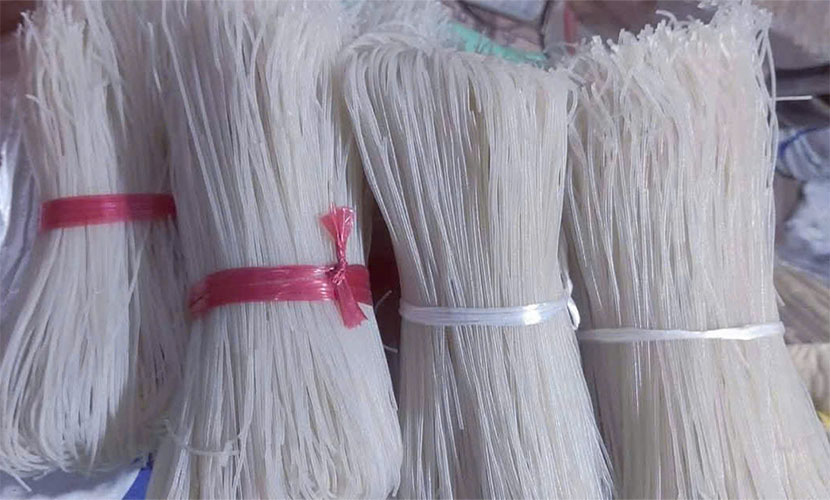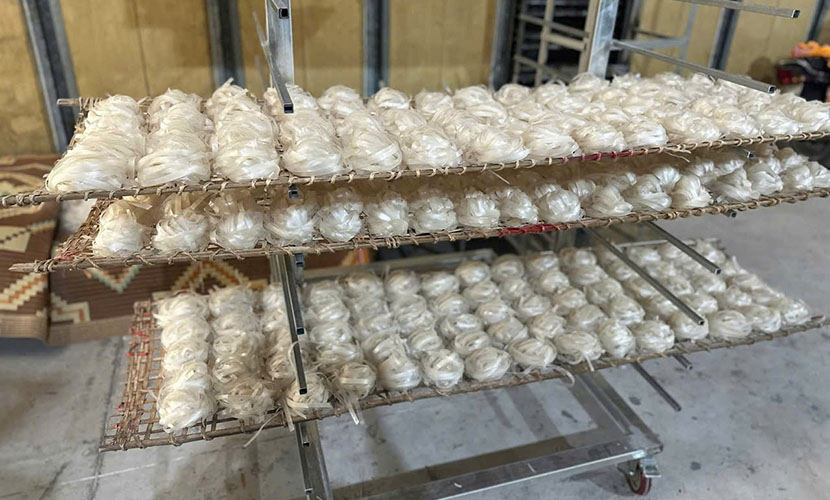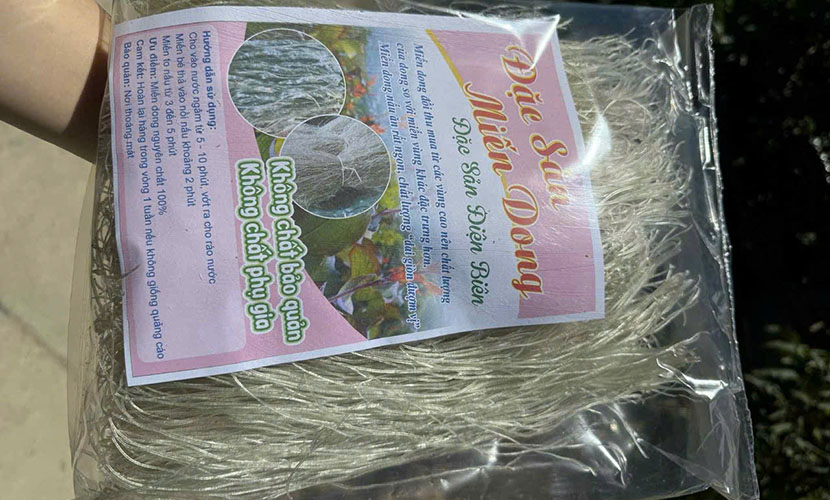
As of July 3rd, 2022, export shipments of Vietnamese dried noodles to the European countries no longer require a food safety certificate issued by Vietnam’s Ministry of industry and trade.
On June 13, 2022, the European Commission announced the removal of rice noodles, vermicelli, and pho products originating from Vietnam from the list of items requiring additional food safety certification, as stipulated in Annex II of Regulation (EU) 2021/2246.

Vietnamese dried noodles (bún khô)
The new regulation on food control measures for exports to the EU takes effect from July 3, 2022. From that date onward, shipments of Vietnamese dried noodles exported to the EU are exempt from the requirement to include a Food safety certificate issued by the Ministry of industry and trade.
The regulations have been eased for rice noodles, vermicelli, and pho. However, the EU continues to require additional food safety certification for instant noodles and dragon fruit originating from Vietnam.
According to the EU, the reason is that instant noodles contain seasoning and other ingredients or additives. In the meanwhile, dragon fruit still poses potential food safety risks. One of the reasons is the lack of significant progress in reducing the frequency of shipments’ warnings.
Under EU guidelines, prior to exporting instant noodles and dragon fruit, Vietnam’s competent state authorities must inspect the production process and collect samples for testing. This forms the basis for issuing the required Food safety certificate.

Vietnamese dried pho (phở khô)
Vietnam SPS office is the focal point for implementing the Phytosanitary Chapter of the EU-Vietnam Free trade agreement. Since January 2022, the office has proposed various solutions to address issues in agricultural trade. At the same time, it has acted to ensure food safety compliance between the two parties.
Specifically, the Vietnam SPS office responded to the EU’s new regulation temporarily increasing the inspection frequency for dragon fruit, as well as for certain herbs, okra, and chili. The EU also requires an additional certificate verifying ethylene oxide levels in instant food products.
At the same time, the SPS office committed to updating the implementation progress of the SPS commitments under the EVFTA. Also, the office commited to maintaining a list of Vietnamese agricultural exporters authorized to export to the EU.
In early May 2022, the Vietnam SPS office, in coordination with the Plant protection department, representatives from the Ministry of Industry and Trade, and relevant agencies, held discussions with the EU Delegation to Vietnam and technical units to seek solutions for reducing the inspection frequency of Vietnamese dragon fruit and instant noodles.

Vietnamese canna starch noodles (miến dong)
Mr. Ngo Xuan Nam, Deputy Director of the Vietnam SPS Office, stated: “We acknowledge the EU’s cooperation in recent times. Particularly, the SPS Sub-Committee meeting under the EVFTA Joint Committee was a great success. We hope to agree on solutions and timelines that will lead to reduced inspection frequency for Vietnam’s agricultural and food exports, especially dragon fruit and instant food products.”
To achieve this goal, the Vietnam SPS office calls on Vietnamese exporters to strictly comply with registration and certification procedures by competent authorities and closely monitor residue levels in export products.
Vietnamese source: https://nongnghiepmoitruong.vn/noi-long-quy-dinh-xuat-khau-bun-mien-pho-sang-eu-d325383.html
